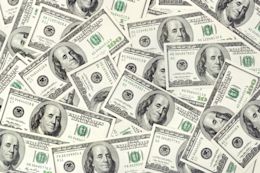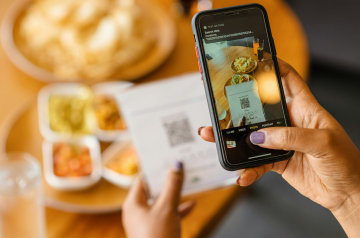
The cost of cash
Why does cash cost so much money? We explain the cost of cash and why cashless payments are the future.
4 min read
Whether in the context of politics or business, cash seems to be on the way out. You’d be hard-pressed to find many forecasters who see a growing financial future for paper bills or copper coins. One clear signal: the European Central Bank will be discontinuing the €500 note. It’s not personal. It’s not that we have a “thing” against cash. We’d probably even be friends, if cash didn’t make having a relationship so difficult. It’s expensive to process and it enables sketchy activities. We just don’t see a long-term future with it for the economy in general or for modern banking in particular. Sorry, cash. But why does cash cost so much money?Cash needs to be printed, continually inspected and then transported to and secured in safes. That costs the German economy over €10 billion each year. That’s not to mention all the illegal activity in Germany associated with cash (think about it—have you ever used a €500 bill?) It’s not just the macro economy or business service providers that pay the price for cash; individuals pay as well. Every year astronomical sums of cash are lost or stolen. These days, cash often earns essentially no interest, meaning it’s a non-productive investment vehicle. And finally, think of all the time spent/ lost productivity from standing in lines at ATMs or waiting for slow cash transactions at a retailer. It’s estimated that the hidden cost of cash has soared to more than €150 annually per German citizen. Much of this is initially borne by banks—for security, ATM maintenance, etc.—but then often comes back to bite consumers. This is why most banks charge for conventional checking accounts, impose minimum deposit requirements, or both.Spending control: Some people are concerned about “losing control” of spending by using a card. But the truth is that using cash is probably the least trackable way to spend money. The statistics in the N26 app show you detailed breakdowns of exactly where you’ve used your card, so you stay in the know.Purchase confirmation: Ever feel uncertain about whether the correct amount will be booked after a card purchase? With N26 you’ll receive an instant push notification after every card usage, so you can always be sure.Small amounts: If you find it cumbersome to make bank transfers for small amounts (say, €3.50 to your friend for a beer), our MoneyBeam feature can help. With MoneyBeam you can instantly transfer funds to friends. It’s even faster than grabbing money out of your wallet, really.Germans are still a bit critical when it comes to card payments. The leaders in Europe are the Swedes. By looking to our friends up north, we can see just how much potential there is in card payments.Swedes pay five times more often with cards compared to Germans. From 2010 to 2012 more than 500 Swedish bank branches completely switched to cashless operation. The government’s goal is to be 100% cashless by 2030. Coins and bills are disappearing as a payment option on local public transport.Consider using your card even for smaller amounts. On average, Germans tend to reach for a card only once purchases reach €60 or so (which is already getting quite sizeable, in our opinion). But really, there’s no good reason for that. Studies show that there is a macroeconomic benefit to pay by card for amounts one tenth of that, or more like €6. And in many countries in the world, that would be completely normal. Since June 2015 taxis are required to accept card payments—in fact, each business needs to accept a minimum of three of the traditional cards. In the big-box discount stores like Lidl and Aldi, the trend towards card payments has been growing since the summer of 2015.Visit the ATM less often. Every ATM transaction pumps expensive cash back into circulation to start the long cycle again.And ok...self-serving as this may be...please share your enthusiasm for N26 with friends and family. With our fast account sign-up process, you’ll be able to share MoneyBeams with them before you know it.Let’s change banking together!
Macroeconomic costs
Individual costs
Hidden costs
The N26 app gives you the power to use your card in ways that are much better than cash
Germany is lagging behind
So, what are some suggestions for a glorious world that’s free from cash?
Find similar stories
BY N26Love your bank
Related Post
These might also interest youTECHNOLOGY & SECURITYHow N26 will contact you — and how we won’t Scammers and fraudsters may pose as representatives of N26 to try to steal customer data. Here, we dive into how N26 will and won’t contact you, so that you can spot the scams.
10 min read
TECHNOLOGY & SECURITYWhy every day is April Fools’ Day for fraudstersToday’s scams look, sound, and feel real — until your money disappears. Here’s how to keep your finances safe.
5 min read
TECHNOLOGY & SECURITYHow scammers are using QR codes to steal your dataNot all QR codes are harmless. Here’s what to look out for to avoid falling for a “quishing” scam.
4 min read



